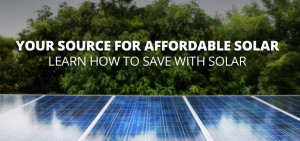Solar Panels and Severe Weather: What You Need to Know
Mother Nature doesn’t discriminate. Regardless of where you live in the United States, you’ve probably seen hundreds of pictures of damage due to hail, hurricanes, tornadoes, and rain downpours. Since solar panels are so conveniently placed outside atop an exposed roof, many prospective solar panel owners wonder if their new, expensive system will withstand severe weather. Here’s how PV systems typically respond under different types of weather:
- Hail
Hail is an unwelcome reality in many parts of the country. If you’ve ever visited a used car dealership, you’ve seen upfront the damage hail can cause. Since solar panel manufacturers understand this, products are tested to ensure durability. In fact, most solar panels are capable of handling a hail storm of hail an inch in diameter falling at 50 miles per hour. The same hail that dents cars, cracks windows, and rips furniture has little to no effect on solar panels.
- Hurricanes
Real-life experience has taught us how solar panels hold up during hurricanes. In Hurricane Sandy in 2012, the state of New Jersey had recently installed 103 megawatts of PV power. Of all the new installations, only a handful of panels were reported as damaged. With the exception of a few loose metal casings, the system was largely untouched.
Most solar panels are guaranteed to withstand wind up to 140 miles per hour. In addition, the external aluminum and glass casing that covers the energy-converting material is highly waterproof. Even extreme rain doesn’t penetrate coverings.
The Good News
Although damage due to severe weather is unlikely, there is good news if disaster does strike: Many solar panel systems are covered under homeowner’s insurance. Solar panels are typically considered as an add-on to the home’s existing infrastructure. This means that in the case of a severe weather emergency, solar panels will be treated just like the rest of the house. Of course, each insurance plan is different. For full information about the classification of solar panels in your insurance plan, contact your insurance agency.
There are many myths surrounding severe weather and solar panels. The reality is that solar panels are expertly engineered and able to hold up under even the most extreme conditions. If “extreme” is a good word to describe your corner of the world, contact National Solar Project to find out how solar panels can reduce your monthly utility cost.


